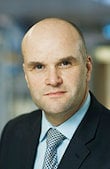People impact
- Closely following the local situation in areas where the health care system may be challenged.
- 2,100 employees temporarily laid off.
- Collective vacation and prolonged Easter break at some sites.
- Hydro donates BRL 5 million for four new field hospitals in the state of Pará in Brazil.
- Hydro donates BRL 2 million in food baskets to municipalities where we operate in northern Brazil.
- Hydro donates 5,000 test kit to municipalities where we operate in northern Brazil.
- Hydro donates NOK 500,000 to UNICEF’s emergency fund, Humanitarian Action for Children.
Operational impact
- Bauxite & Alumina: Operations mostly running as normal. High market uncertainty.
- Energy: Operations mostly running as normal. High market uncertainty.
- Primary Metal: Primary production operations mostly running as normal. Husnes, Norway, aluminium plant ramp-up postponed to Q3 2020 at the earliest. Recycler Azuqueca in Spain and Luce in France are temporarily idled. Clervaux recycler in Luxembourg was temporarily idled, re-started April 6, while US recyclers Henderson and Commerce will reduce production in response to falling demand and government-imposed restrictions. High market uncertainty.
- Rolled Products: Operations mostly running as normal. Temporarily reducing production for automotive sector as customers closing production. High market uncertainty.
- Extruded Solutions: An increasing number of sites currently impacted by the situation with reduced production at several sites. Around 30% of the sites are running at approximately normal levels, around 45% are running at reduced levels and around 25% of the sites are either closed or running at very low levels. Some sites in southern Europe reopened this week.
Published: April 8, 2020
